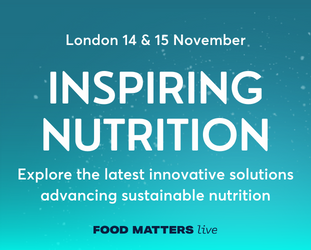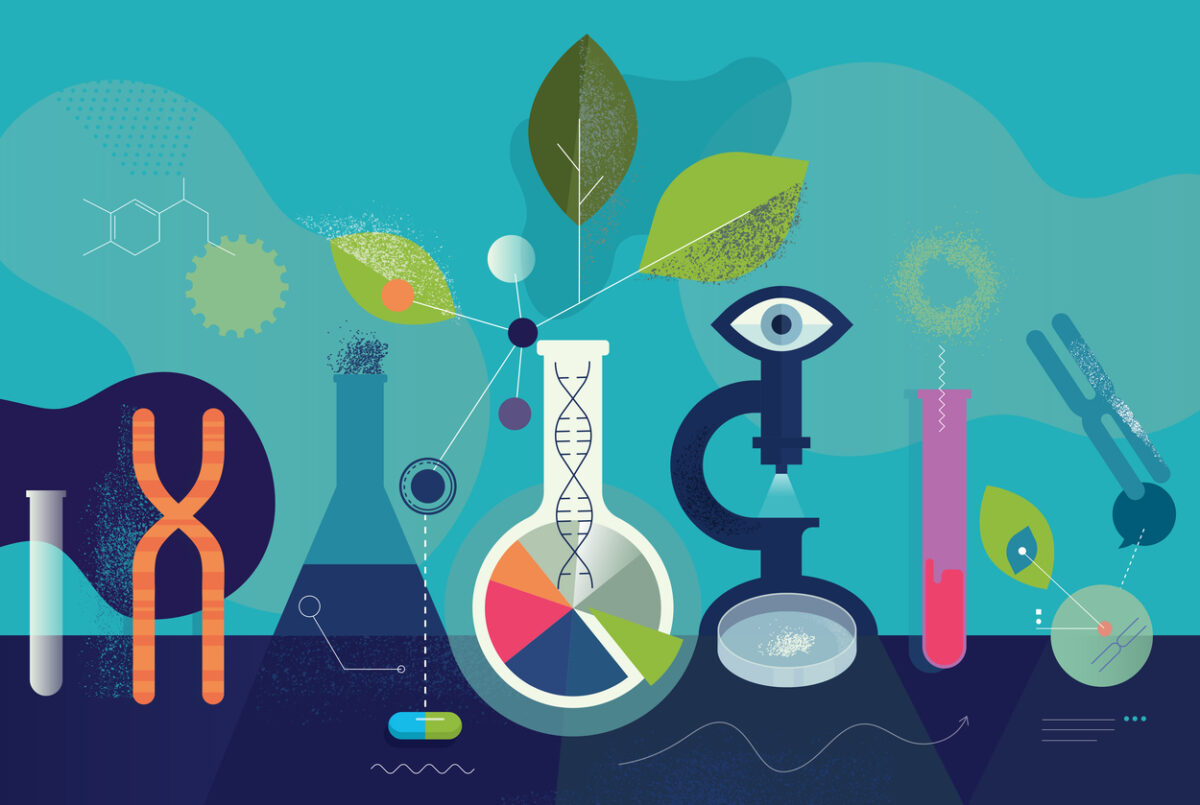10 key trends in nutrition and health of 2023 and beyond

Innovation and interest in nutrition and health and their trends are gaining momentum, and with obesity in the UK and around the world skyrocketing, the need for good, healthy food is more important than ever. In England alone, 25.9% of adults are obese and a further 37.9% are overweight. Three quarters of English adults aged 45-75 suffer from obesity and children don’t fare much better, with 23.4% of year six (age 10-11) classified as obese and 14.3% as overweight.
The need to improve the nation’s nutrition is not solely for health reasons, but for environmental ones too. Cutting down on meat, fish and dairy consumption and eating more sustainably is of the utmost importance if we want to reduce the damage humans cause to the planet. But that’s not all. New advances and discoveries are highlighting areas where nutrition needs to be improved and expanded, and where food can help to support our physical and mental health.
Aoife Marie Murphy PhD, Sustainable Nutrition Manager at global ingredients, taste and nutrition company Kerry, was a keynote speaker at Food Matters Live’s Inspiring Nutrition event, which took place at the Wellcome Collection in London on 23-24 May. In her insightful talk, Aoife discussed the 10 key trends in nutrition and health for 2023 – and an extra mega trend – in depth, highlighting the importance of developing and optimising these areas for the health of humans and the planet.
Mega trend: sustainable nutrition
It’s estimated that by 2050 the population will increase to a whopping 9.7 billion. There are currently two billion men, women and children in the world who are overweight or obese, whilst 690 million are malnourished or don’t have enough food to eat, yet 30% of food produced globally is wasted every day. These figures are certainly sobering, but they can and must be reversed. Upcycling ingredients to be used in food production, eliminating food waste, transforming food systems to ensure resilience to climate change, safeguarding and promoting biodiversity and implementing ecolabelling are some of the most important changes happening in sustainable nutrition.
Functional flourishing
Consumers are looking for functional food and drink products with added health and beauty benefits more than ever.
According to research carried out by Kerry, 51% want products that support skin health, 44% that strengthen the immune system, 44% that help improve the look and health of hair, 43% are after food and beverages that aid weight management, 42% that support gut and heart health, 39% that help with muscle recovery after a workout and that support their energy, 38% look for items that improve their sport endurance, whilst 38% want food and drinks that promote bone health. Consumers want functional food and beverages backed by science and whose benefits are demonstrated with scientific studies.
Women’s health
As we are moving from the concept of ‘one diet fits all’ in nutrition, the importance of targeting products for the unique physiological needs of women is a huge trend in 2023. The nutritional needs of females are very different from males’. Women are at higher risks of osteoporosis for instance, in particular postmenopause, and require different dosages of calcium. Ingredients and products that address their nutritional needs during pregnancy, breastfeeding, infertility, menopause, premenstrual tension, gut health, immunity and cardiovascular health are being researched and developed, and will be available in the near future. Botanicals, such as liquorice root extract which reduce menopausal symptoms, have the potential to be a game changer for women’s health. “Female-specific symptoms and diseases are numerous and widespread yet our understanding of the female body is not comparable to what we know about men,” says Aoife Marie Murphy. “Building credible scientific evidence in females is a priority, to develop products that meet the needs of women of all ages.”
Kerry Health and Nutrition Institute will be running a webinar on women’s health, Innovating for Women’s Health: Optimising Wellness Across Lifestages on 14 June 2023. For more information visit their website here.
Advanced activity
With more and more people doing physical activity, joint and heart health at any age is in focus. Athletes, amateurs, and the average gym goer want to ensure their body is in top condition now and as it ages. Products that support joint and cardiovascular health, reduce inflammation and enhance performance are a huge trend at the moment, with Ayurvedic and botanical extracts proving particularly effective, according to Niamh Hunt, PhD, Global Marketing Manager for Immune and Joint Health at Kerry.
Cognitive health
Nootropics and adaptogens that promote and improve cognitive health are getting much attention at the moment. Consumers have recognised the need for food and drinks that help them focus, improve their memory, balance their mood and help them complete tasks in their personal and work life. Berry-derived flavonoids, omega-3 fats, mushrooms and the evergreen shrub ashwagandha are just some of the ingredients found to be aiding cognitive health. This trend is getting bigger and more money is being spent on research.
High stages for sugar and salt
All eyes are on sugar and salt – specifically the high content of the two ingredients in many foods. The UK Government has gone back and forth on its legislation of advertising and promotion of HFSS foods, much to the disappointment of organisations such as Action on Sugar and the Obesity Health Alliance (OHA). There’s no denying that too much salt and sugar (and saturated fats) is detrimental to human health and legislation such as the Sugar Tax has actually proven successful in the reduction of the white stuff in products, so 2023 will see more action being taken to regulate the use and promotion of both.
Protein production of the future
Innovation to produce proteins away from factory farms is moving fast. With there being an urgent need to cut down greenhouse gases and feed a growing population, finding new ways of producing protein is of the utmost importance. Cultured meat and precision fermentation are two of the most talked about technologies. Whilst the sale and consumption of cultured meat for instance is currently only allowed in Singapore, it won’t be long until other countries pass positive legislation on these novel foods. The FDA has already sent No Questions Letters to cellular agriculture start-ups GOOD Meat, Remilk and Upside Foods, so it’s only a matter of time before cell-based meat, dairy and fish are allowed for human consumption in the USA.
“Food connects the people and the planet, and this trend has great potential to advance both. The rapid developments in artificial intelligence, big data, pharma technologies, and agri-tech have been adopted by a new generation of scientists, fuelled by purpose to save the planet and keep the food system sustainable,” says Adriana de Camargo, Kerry’s Global Technology Innovation Program Lead. “They are transforming the food industry – this has been accelerated by large investments – bringing to life many start-ups that are willing to disrupt the way we produce food. Personally, I believe more efforts must be taken to prepare the introduction of these new products – we do not know yet how consumers will adopt these novel foods.”
Microbiome: beyond digestive health
The microbiome has been receiving much attention in the last few years, but mainly for digestive health. But the microbiome is not just about the gut, microbes live everywhere in our system – our mouths, skin, respiratory and urogenital tracts for instance. Microbiome research is becoming more holistic and is looking at all the different parts where microbes reside in our system, how they affect our health, and the benefits of a healthy microbiome. This trend is going to be huge and will shed light on the importance of good bacteria for human health.
“Microbiologists are identifying more and more bacteria with interesting properties,” says Dr. Mathieu Millette, Scientific Director at Kerry’s Bio-K+ division. “These bacteria can be isolated from humans, foods, animals, or the environment. With the proliferation of bacteria and formats, it is also critical to develop and implement modern and innovative methods to ensure the quality, integrity, and bioactivity of bacteria throughout the supply chain. It is of tremendous importance that the probiotic products deliver the benefits they are claimed to. These are key challenges to be solved for development of any probiotic-linked benefit. ”
Hydration optimised
In the West we are very lucky to have plenty of access to clean, potable water, yet many of us don’t drink enough of it. Whilst severe dehydration is not a problem in Europe, many struggle to drink the recommended amount. Low sweetness flavoured sparkling water and electrolyte powders containing some sodium and glucose to accelerate the absorption of water are big trends in this realm, but consumers are moving away from sugary water and drinks, preferring healthier options instead.
Plant-based and plant forward
Plant-based food has been a huge trend in the last few years, and despite some questionable articles popping out here and there hailing the end of vegan food, animal-free produce is going nowhere and in fact it’s still very much a growing category that will deliver much more innovation in the years to come. Novel plant-based solutions will provide more when it comes to taste, texture and nutrients. Whilst there are many excellent products and brands that mimic the taste and mouthfeel of meat, fish and dairy, more advances are being made to create nutritious vegan food. This trend will see more whole-muscle cut textures, healthier plant fats that will deliver succulence, less ultra processed plant-based meat that will use fewer ingredients and will go through fewer processes, and new technologies, such as high moisture extrusion.
Plant-forward products focus on what the plant is and what it naturally contains, so the focus in this category is for instance fibre, legumes and wholegrains. The future of this trend is succulent, delicious plant-based food that’s minimally processed, has a high nutritional profile and will have a more satisfying taste, texture and mouthfeel.
David Hamilton, Global Creative Insight Officer at Kerry explains: “Consumers are starting to want more than meat mimicry and are challenging the heavily processed nature of plant proteins and beginning to suggest they want novel food experiences. In the future non-mimicking could create endless opportunities, it would allow us to reimagine plant-based proteins. This is only just starting to raise its head as we dig deeper into consumer trends and reports but shouldn’t be ignored.”
Affordable nutrition
COVID-19, the effects of the war between Russia and Ukraine, and inflation have left many out of pocket, but good, nutritious food should be affordable and enjoyed by all.
Beans, wholegrains, fruit and vegetables are inexpensive, highly nutritious and versatile, and can form the basis of some new healthy products that can be afforded and enjoyed by anybody. This trend will kickstart the democratisation of nutrition and will allow everyone to have a delicious and healthy diet.
“Inflation is at a 40 year high with many foodstuffs and value chains from cereals to proteins disrupted and consumer products impacted,” says Juan Aguiriano, Group Head of Sustainability & Technology Ventures at Kerry. “Affordable sustainable nutrition has never been more critical, with the population set to grow to 8.5 billion people by 2030. Food innovation is not only focused on premium novel ingredients, but also on how can we make the food system more economically sustainable by maximising the nutritional density and affordability of a wide variety of foods to nourish communities globally.”









